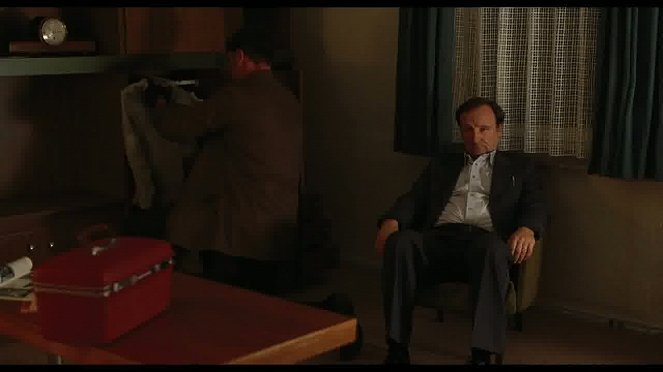Ohjaus:
Christian PetzoldKäsikirjoitus:
Christian PetzoldKuvaus:
Hans FrommSävellys:
Stefan WillNäyttelijät:
Nina Hoss, Ronald Zehrfeld, Rainer Bock, Deniz Petzold, Jasna Fritzi Bauer, Peer-Uwe Teska, Mark Waschke, Kirsten Block, Susanne Bormann (lisää)Suoratoistopalvelut (3)
Juonikuvaukset(1)
Kylmän sodan pirstaloima Saksa vuonna 1980. Nina Hoss on Barbara, nuori lääkäri, joka on anonut matkustuslupaa Itä-Saksasta. Pyynnön seurauksena hänet karkotetaan maaseudulle, syrjäisen kyläsairaalan lääkäriksi. Pienessä yhteisössä valvonta on helpompi toteuttaa. Kontrolli tuntuukin ulottuvan kaikkialle. Barbara ei voi hengittää vapaasti eikä luottaa kehenkään. Omista asioistaan vaitonainen nainen pitää etäisyyttä kollegoihin ja kyläläisiin. Barbara omistautuu työlleen välittäen vain potilaistaan. Oma elämä alkaa sitten myöhemmin. Salaiset kohtaamiset vanhojen ystävien kanssa antavat viitteitä tulevaisuudensuunnitelmista. Mutta suunnitelmat muuttuvat. (Future film)
(lisää)Arvostelut (2)
Barbara is a solid drama, though unfortunately with a somewhat soap-opera-like ending that shows some lazy
screenwriting.
()
Barbara is a gem, and not only in comparison with strained, black-and-white Czech cinematic throwbacks to the period of normalisation. Petzold doesn’t work with flattening oppositions, as he takes multiple perspectives into account and confronts the titular protagonist with complex moral dilemmas. As with the other characters, Barbara is for us a woman of mystery who is hiding something. We don’t know what she is guilty of or what her intentions are. Based on the mistrustful glances of others, as well as on the way the camera captures her, it is apparent that Barbara is under constant surveillance. With her privacy gone, she has no reason to feel joy. She doesn't believe in happiness; fear is her predominant emotional state. Her helpfulness towards others is selfish. If she needs nothing, she does not allow others to physically approach her and she communicates with them in curt sentences. She prefers to express herself only by playing inoffensive music on the piano. Patients are an exception – a promise that it is possible to do something meaningful even in the depersonalised era of Communist torpor. Thanks to the ambiguous characters, attention to detail (sticking band-aids on ankles, leafing through a Western catalogue) and the subtle production design (the props don’t draw attention to themselves, but are just simply in the shot), the world of East Germany depicted in Barbara seems very authentic and not like an excursion to a museum of Communism. (A nice example of the unforced rendering of the reality of the time is the clash of two worlds, represented by a Trabant and a Mercedes on a forest road.) Whereas Czech filmmakers scream about how all Communists were swine and how hard life was for decent people, Petzold neither slips into such generalisations nor engages in a transparent attack on the system. He touches on the major history through a single small, intimate story, which does not prevent him from simultaneously capturing the atmosphere of the time and posing some timeless questions about a person’s responsibility for others. Barbara is an extraordinarily powerful drama even without powerful language. It simply works. 80%
()

